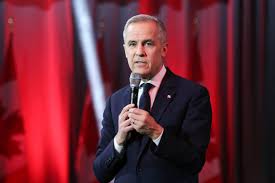Chill in ties, window closing for Canada invitation to G7 summit

New Delhi/Ottawa — June 4, 2025:
Tensions between India and Canada continue to simmer, and the diplomatic chill could soon have broader consequences. With just weeks remaining before the Group of Seven (G7) summit is held in Italy, speculation is mounting over whether Canada will extend an invitation to India’s Prime Minister Narendra Modi—a move that has traditionally been routine for G7 host nations when dealing with global partners.
As a key voice in the Global South, India has often been seen as a natural guest at G7 meetings. However, this year’s host, Canada, has yet to extend the formal invitation, raising eyebrows in international diplomatic circles. Many analysts suggest that the ongoing rift between Ottawa and New Delhi has created a cloud of uncertainty over India’s participation in the summit.
Frosty Relations Since 2023
The current tension can be traced back to September 2023, when Canadian Prime Minister Justin Trudeau alleged that Indian government agents were linked to the killing of Hardeep Singh Nijjar, a Canadian citizen and pro-Khalistan activist. India has strongly denied the accusations, calling them “absurd” and demanding concrete proof.
The fallout was swift: both countries expelled senior diplomats, India suspended visa services for Canadians temporarily, and trade talks were frozen. Despite repeated efforts by various international intermediaries, the two sides have made little visible progress in mending ties.
Summit Invitation Still in Limbo
Italy is the official host of the G7 summit this year, scheduled for later this month. However, Trudeau is said to be personally overseeing the process of inviting non-member nations, including India. According to diplomatic sources, Trudeau’s team has yet to finalize the guest list.
“Canada has always emphasized inclusion and diversity in international diplomacy. But when it comes to India, political tensions are evidently influencing procedural norms,” said a senior official in the Indian foreign ministry, speaking on condition of anonymity.
While previous summits have seen India invited by hosts like France, the UK, and Germany without delay, this year’s silence has become conspicuous. Insiders suggest that if an invitation is not sent within the next week or two, logistical planning will make it nearly impossible for India to participate.
Global Stakes of India’s Absence
Experts warn that excluding India from the G7 could send the wrong message, particularly at a time when the West is seeking greater cooperation with emerging economies to address global challenges such as climate change, AI governance, and supply chain resilience.
“India’s absence would be a strategic setback for the G7. The bloc has been trying to align more closely with the Global South. Alienating India would be counterproductive,” said Francesca Rossi, an international affairs expert with Rome-based think tank Centro Politico.
India has played an increasingly active role in global forums. During its G20 presidency in 2023, it emphasized bridging the North-South divide and championing digital inclusion and climate financing. Its absence from the G7 could not only be diplomatically awkward but also counterproductive to the bloc’s broader goals.
Canada’s Domestic Considerations
Analysts believe Trudeau is walking a political tightrope. While he wants to maintain a firm stance on the Nijjar issue to satisfy domestic constituencies—including the influential Sikh community in Canada—he also faces international pressure to de-escalate tensions.
“Canada’s hesitation reflects domestic political constraints more than international strategy,” said Professor Linda Connors from the University of British Columbia. “But time is running out. If the goal is to maintain Canada’s reputation as a balanced and inclusive international player, excluding India might backfire.”
Some critics within Canada are also questioning the wisdom of allowing bilateral issues to spill over into multilateral diplomacy. They argue that Trudeau risks looking petty on the global stage by withholding the invitation over unresolved grievances.
India’s Calculated Silence
Interestingly, New Delhi has remained publicly silent on the issue. There has been no formal statement regarding expectations of an invitation. However, government insiders confirm that India is closely watching developments and has not ruled out declining the invitation if extended too late or under unfavorable conditions.
“India is not keen on appearing desperate to attend. It has other global platforms and partners. Any invitation must come with dignity,” said a former Indian ambassador to Canada.
The Road Ahead
With only weeks to go, the G7 summit invitation issue has turned into yet another flashpoint in the India-Canada standoff. While some hope for backchannel diplomacy to quietly resolve the deadlock, the reality is that time is rapidly running out.
If India is left out of the summit, it will mark a significant shift in recent diplomatic norms and further underscore the strained relationship between the two democracies. On the other hand, a late but conciliatory invitation could open the door to a thaw—at least symbolically.
Conclusion
As the G7 summit draws near, the absence of clarity over India’s participation adds a layer of diplomatic intrigue. Whether Canada chooses to uphold global diplomatic tradition or lets bilateral tensions dictate its decisions remains to be seen. But one thing is certain: the world is watching.






